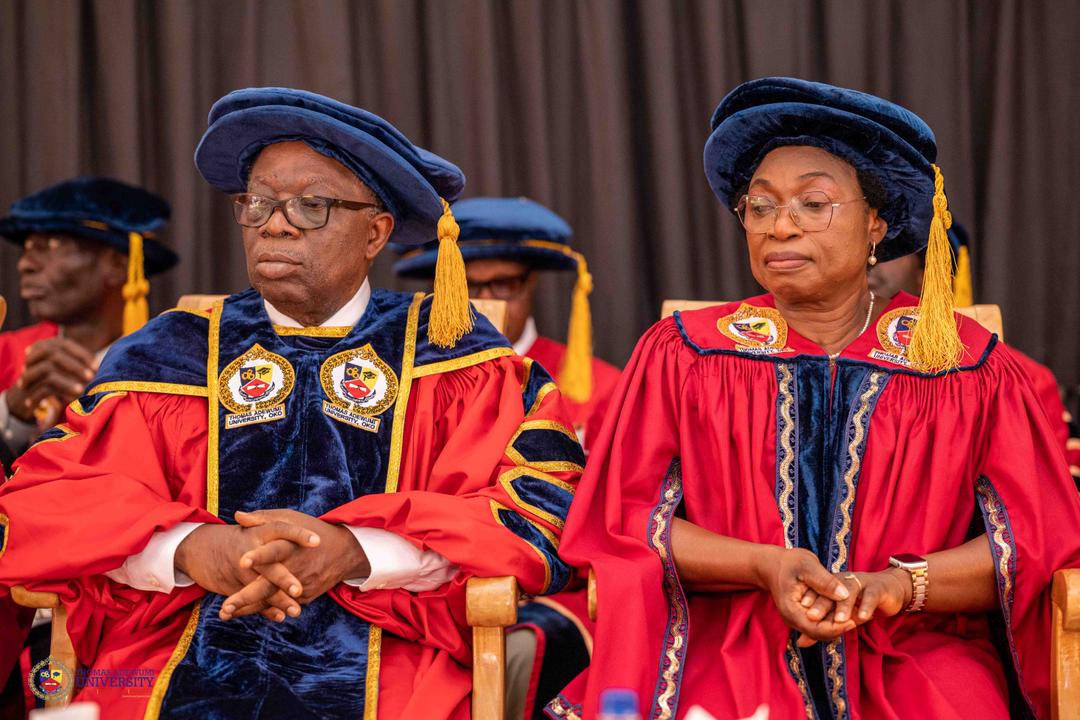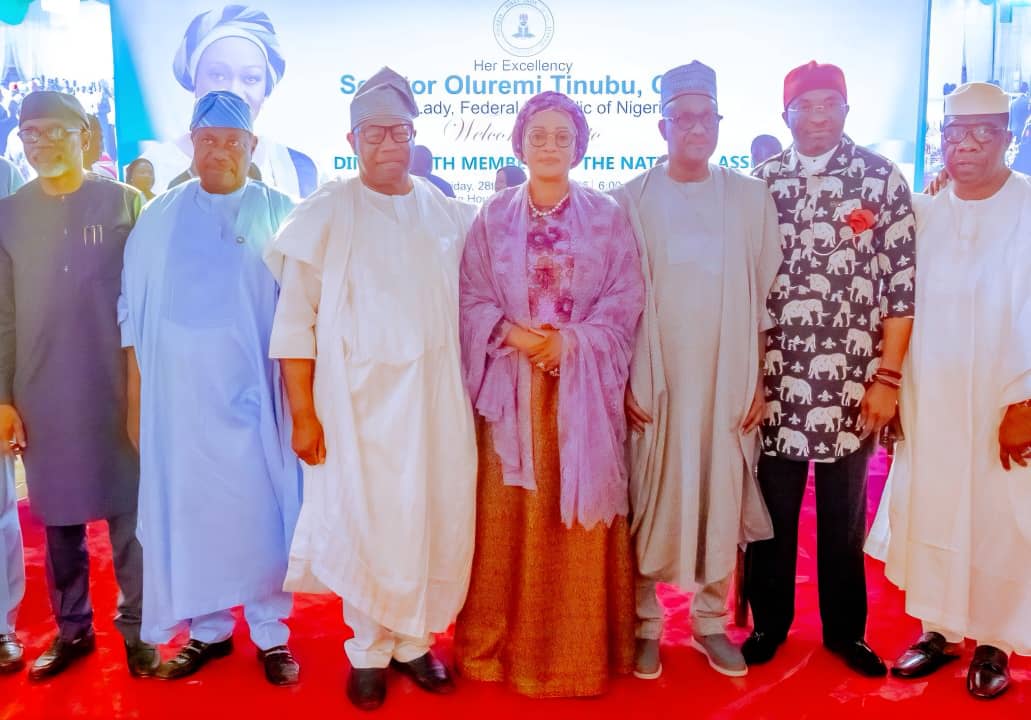Uncategorized
America’s fentanyl crisis is a national failure. Blaming China won’t fix it.

By Zhong Sheng, People’s Daily
When a U.S. mayor recently floated the outrageous idea of “giving free fentanyl” to homeless people, the public backlash was swift and fierce. The episode once again exposed the severity of America’sfentanyl crisis. Yet rather than confronting its domestic failures, Washington has repeatedly turned to scapegoating – citing the fentanyl issue as a pretext to impose additional tariffs on imports from China.
This pattern of deflection does nothing to resolve America’s own problems and instead risks jeopardizing the foundation for China-U.S. cooperation on drug control.
Eventoday, the U.S. has yet to fully and permanently regulate fentanyl-related substances, and its sluggish regulatory response has only worsened drug abuse and the proliferation of narcotics.
Despite being home to just 5 percent of the world’s population, the country accounts for 80 percent of global opioid use – a veritable black hole in global drug control efforts.
According to data from the U.S. Centers for Disease Control and Prevention, there were an estimated 74,702 overdose deaths from synthetic opioids – primarily fentanyl – in the U.S. during 2023, accounting for nearly 70 percent of all drug overdose fatalities. For Americans aged 18 to 45, the leading cause of death is fentanyl.
Confronted with what has been described as “the singledeadliest drug threat America has ever encountered,” the U.S. government has yet to deliver a coherent or effective response. It has failed to reduce domestic demand, strengthen oversight of prescription medications, or enhance public awareness of the harms associated with drug abuse. To this day, a comprehensive anti-drug policy remains elusive.
According to a survey commissioned by PAX sapiens, when asked to select a single group most responsible for the opioid crisis, criminal cartels were most frequently identified followed by the pharmaceutical companies and the U.S. federal government. As the Atlantic has noted, addressing the fentanyl crisis in the U.S. requiressweeping reforms across public policy, law enforcement, and the legal system.
As one of the countries with the strictest anti-drug policies and the most rigorous enforcement in the world, China maintains a zero-tolerance attitude towarddrugs, including fentanyl-related substances, and rigorously meets its international drug control obligations.
In March this year, China released a white paper titled “Controlling Fentanyl-Related Substances — China’s Contribution,” highlighting its rigorous control over the chemicals. China has exercised strict supervision over fentanyl-related medications, struck hard against fentanyl-related crimes, enforced strict control over precursors of fentanyl-related substances, accelerated technology research, development and application, adopted comprehensive measures for more efficient drug control, and promoted global governance.
Despite the absence of widespread fentanyl abuse domestically, Chinabecame the first country in the world to officially schedule fentanyl-related substances as a class in 2019 out of humanitarian goodwill and at the request of the U.S. side. Since China’s regulation, there have been no cases of fentanyl-related substances being smuggled and trafficked from China to other countries – and no reports from the U.S. of seizures of such substances originating from China.
Even the U.S. Department of State, in its International Narcotics Control Strategy Report, acknowledged that America had detected or seized almost no shipments of fentanyl or fentanyl analogues coming from China since 2019, when China implemented class-wide controls of all forms of fentanyl.
In recent years, the precursors of fentanyl-related substances have constantly changed, and the number of variations soared. China has consistently strengthened precursor control, adopted multi-level and category-specific supervision, strictly supervised exports, and curbed the diversion of precursor chemicals. It has also carried out sustained and in-depth cooperation with relevant countries, including the U.S. and Mexico, yielding notable results in addressing the cross-border diversion of fentanyl precursors.
Drug law enforcement is a central focus of cooperation between China and the United States. The China-U.S. Counternarcotics Working Group, established in 2024, provides an important platform for the two sides to jointly address global drug challenges.
In July 2024, an interdepartmentalChinese delegation visited the U.S. to attend the first senior official meeting of the working group. The drug control authorities of the two countries also maintain daily hotline communication and host regular exchange meetings. The two sides have been working pragmatically to promote dialogue and cooperation in drug control and law enforcement.Since 2024, multiple exchangeshave been conducted to promote technical cooperation and strengthen technical support in addressing the fentanyl issue.
As reported by the Diplomat, China-U.S. cooperation on fentanyl can save lives, protect societies, and punish drug traffickers.
The unilateral imposition of tariffs by the U.S. on goods imported from China under the pretext of the fentanyl issue severely violates the rules of the World Trade Organization. China is strongly dissatisfied with and firmly opposes the action, and has taken necessary countermeasures to firmly safeguard its own rights and interests.
China upholds a clear and principled position on its cooperation with the U.S. on drug control: It is committed to dialogue and cooperation based on equality and mutual respect. The U.S. should respect the facts, confront its own problems, and make choicesthat truly serve the interests of its own people. It must stop using the fentanyl crisis as a pretext topressure, threaten, or blackmail China.
(Zhong Sheng is a pen name often used by People’s Daily to express its views on foreign policy and international affairs.)
Uncategorized
TAU reaffirms commitment to globally competitive learning

- As 16 graduands make First Class
Stephen Olufemi Oni, Ilorin
The Thomas Adewumi University (TAU), Oko-Irese, in the Irepodun local government area of Kwara State, has reaffirmed its commitment to strengthening quality education, innovation, and globally competitive learning.

Speaking at the institution’s 2nd Convocation ceremony in Oko-Irese, the Vice Chancellor of the University, Professor Francisca Onaolapo Oladipo, said TAU is living up to its ranking as the fastest growing institution in Science, Technology, Engineering, Medicine, and Innovation (STEM-i) ecosystem by surpassing more than 100 percent in its number of graduating students at the second convocation.
She said: “TAU emerged on April 8, 2021, as Nigeria’s fastest-growing Science, Technology, Engineering, Medicine and Innovations (STEM-i) ecosystem. Today, we rank 1st among the 20 private universities that were licensed in
2021, 4th among the 14 Universities in Kwara State, 5th among Nigeria’s over 170 private Universities and 50th nationally, an impressive rise reflecting our unwavering commitment to excellence.
”What a Moment of Extraordinary Significance today, we stand at a crossroads far more significant than words can adequately capture. Exactly one year ago, we gathered at this very Auditorium to celebrate our inaugural Convocation, a ceremony that marked the graduation of 26 pioneering students who dared to believe in a vision when others saw only impossibility. Those 26 trailblazers proved that Thomas Adewumi University was not just a dream, but a reality rooted in excellence. Today, as we honour 63 outstanding graduates, we witness something far more profound than numerical growth.
“This 142% increase in our graduating class is not merely a statistic to be recorded in annual reports, it is a declaration that Thomas Adewumi University has transcended the realm of promise and entered the domain of proof.
“We have moved from potential to performance, from aspiration to achievement, from vision to velocity.
This year, 63 graduands from 4 Faculties and 11 academic programmes are being conferred. It is noteworthy that we have 16 First Class graduates, 40 in Second Class Upper Division, and 7 in Second Class Lower Division. These results reflect the quality of training and mentorship provided at Thomas Adewumi University, and we are proud to contribute these innovators to both the Nigerian and global workforce, confident that they will make a meaningful
impact.
”Preparing Globally Competitive Graduates, these 63 graduands are not merely degree holders, they are comprehensively prepared global professionals equipped with exceptional advantages that set them apart from their peers nationwide. Through our international partnerships, these graduates have obtained additional microcredentials from MIT, Harvard, Stanford, Columbia, Berkeley, and Yale, world-class certifications from Alison, UK, RUDN professional University, Russia, World Bank’s Saylor Academy, Google, ICAN, and the Global Partnership for Sustainable Development initiatives in Data Science and Artificial Intelligence.
“Our Coursera collaboration provided them with additional industry certifications, while partnerships with Microsoft, IBM SkillsBuild, and MIT OpenCourseWare through our Global Campus initiative democratize access to cutting-edge knowledge. They are thus fully equipped to embark on meaningful and innovative careers in today’s technology-driven world.”
Earlier in his Convocation Lecture, titled “Crowdfunding Opportunities forstartups: Equiping Nigerian graduates for a sustainable future”, Dr. Bayo Williams Olugbemi charged the graduads on the mindset of job creation, saying “as a graduate, your future is not defined by what Nigeria gives you, but by what you create. The idea of crowdfunding is the idea of hope. It is proof that when people come together, ideas once impossible become achievable.
“I urge you not to think only about searching for jobs. Instead, think about creating value, and if capital is a barrier, remember: “The crowd can be your first investor.”
In his goodwill message, the Executive Secretary of the National University Commission, Professor Abdullahi Ribadu, represented by Esther I. Eyo, Esq commended the resilience of TAU management said “NUC acknowledges TAU sustained progress in advancing quality teaching, impactful research, innovation, and community engagement, all of which align with our national aspiration for a globally competitive and knowledge-driven university system.
“It would interest you to know that, in the accreditation exercise conducted in 2023, Thomas Adewumi University achieved a 100% Full Accreditation status across all programmes assessed a laudable feat that reflects the University’s strong commitment to maintaining high academic standards.”
Also speaking, the Founder/Chancellor of the institution, Dr. (Engr) Johnson Adewumi, urged the graduands to be good ambassadors of the University, adding: “Remember that your degree is not an end but a beginning, go forth with courage, humility, and a sense of responsibility. Strive to illuminate whatever space you occupy with the light of integrity, excellence and service.”
Highlight of the event was the conferment of an honorary doctorate degree on two distinguished personalities; Engr Oluseyi Afolabi and Pastor Oladokun Olatunde.
End
Uncategorized
photo

L-r Speaker, House of Representatives, Tajudeen Abbas; President of the Senate, Godswill Akpabio and Nigeria’s First Lady, Senator Oluremi Tinubu, during the dinner for members of the National Assembly by the First Lady yesterday. Photo: Senate President’s Office.
Uncategorized
JUST IN: Even Tinubu moves with too many police escorts – Senator Ndume

By Hassan Taiye
Senator Ali Ndume has criticised what he described as the excessive use of security convoys by top government officials, including President Bola Tinubu, warning that the practice leaves ordinary citizens exposed and vulnerable.
Speaking on Politics Today on Channels Television on Thursday, Ndume said many public office holders move with security details that are unnecessarily large, even when their positions do not warrant such heavy protection.
He recalled visiting the residence of a colleague and finding “more than 10 policemen” attached to him, despite the lawmaker being junior to him in the National Assembly.
Ndume further argued that the presidential convoy itself is excessively large, stressing that security efforts should be focused on protecting the overall environment rather than individual personalities.
He said: “I went to one of my colleagues’ house for dinner. And I saw more than 10 policemen. He is even my junior in the National Assembly. Some of them, if you see them coming, you will pull back thinking that maybe it’s the President or the Vice President that is coming.
“
You can see even the president, the convoy that the president goes about with is too much. Secure the place and when the president goes, you withdraw. Secure Abuja and the president can even drive out, you know, himself.
But when you secure personalities, and this is what is happening in Nigeria, then others, common people, as we call them, become vulnerable, and we don’t care. So if you secure Abuja, then you can drive at night. And let me tell you, this is what is happening in most countries”.
The lawmaker’s comments come just days after President Tinubu ordered the withdrawal of police officers from VIP escort and guard duties.
In a statement, the Special Adviser to the President on Information and Strategy, Bayo Onanuga, said the directive was aimed at redeploying police manpower to core law enforcement responsibilities.
-

 Uncategorized5 years ago
Uncategorized5 years agoFG, states urged to harness flooding for ranching, others with technology – Agbaje
-

 Headlines10 years ago
Headlines10 years agoBreaking: EFCC seals Borno House of Assembly, as Hon members take to their heels
-

 News11 years ago
News11 years agoNigeria Security Operatives Stage Manhunt For Homosexual Perpetrator
-

 News9 years ago
News9 years agoHow 21-year-old Girl fled community over accusation of lesbianism
-

 News10 years ago
News10 years agoYobe Gov Moves Against Deputy
-

 Opinion7 years ago
Opinion7 years ago7 signs she has friend zoned you
-
Technology4 years ago
Online job placement company headhunts women
-

 Headlines10 years ago
Headlines10 years agoBorno Dep Gov Abducts Another Church Leader





